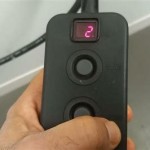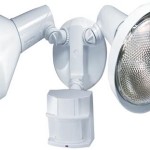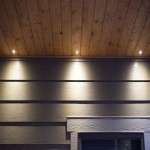Can PVC Conduit Be Used Outdoors Above Ground?
When considering the usage of PVC conduit outdoors above ground, there are several essential aspects to take into account. Understanding these aspects ensures proper installation, safety, and longevity of the conduit. This article explores the critical factors to consider, providing valuable insights for effective outdoor above-ground PVC conduit applications.
UV Resistance
PVC conduit is naturally susceptible to degradation from ultraviolet (UV) radiation present in sunlight. Prolonged exposure to UV rays can weaken the conduit's material, making it brittle and prone to cracking. Therefore, using UV-resistant PVC conduit specifically designed for outdoor use is crucial. These conduits contain additives that enhance their resistance to UV degradation, ensuring durability and extended lifespan.
Temperature Considerations
PVC conduit has a specific temperature range within which it performs optimally. Extreme temperatures, both high and low, can affect the conduit's integrity. In excessively hot environments, PVC conduit can soften and deform, compromising its structural stability. Conversely, in extremely cold temperatures, the conduit can become brittle and susceptible to cracking. Choosing PVC conduit rated for the expected temperature range of the outdoor environment is essential.
Electrical Insulation
PVC conduit serves as an electrical insulator, protecting the wires and cables it encloses. However, moisture and condensation can compromise its insulating properties. Using watertight fittings and sealing entry points is crucial to prevent moisture ingress. Additionally, ensuring proper drainage and avoiding water accumulation around the conduit is essential to maintain its electrical integrity.
Physical Protection
Outdoor above-ground PVC conduit is exposed to various physical hazards, including impact, abrasion, and crushing. Choosing conduit with appropriate wall thickness and impact resistance is vital to withstand potential damage. Additionally, using conduit supports and fittings to secure the conduit securely and prevent sagging or movement is essential.
Fire Safety
PVC conduit is inherently flame-retardant, but it can still contribute to fire spread under certain conditions. Using conduit with flame-retardant additives and ensuring proper installation, including sealing entry points, can minimize fire risks. Moreover, adhering to local fire codes and regulations is crucial to ensure compliance and safety.
Conclusion
Understanding the essential aspects of using PVC conduit outdoors above ground is paramount to ensure reliable performance, safety, and longevity. By considering factors such as UV resistance, temperature considerations, electrical insulation, physical protection, and fire safety, informed decisions can be made when selecting and installing PVC conduit for outdoor above-ground applications.

What Electrical Conduit To Use Outdoors Finnley

Upvc Outdoor Electrical Cable Flexible Conduit Above Ground China Made In Com

Upvc Outdoor Electrical Cable Flexible Conduit Above Ground China Made In Com

Running Power To An Outbuilding Fine Homebuilding

Schedule 40 For Exterior Recept Electrical Inspections Internachi Forum

Installing Conduits Outdoors Aerosusa

Stumped By The Code Ec M

Does An Outdoor Electrical Wire Need To Be In A Conduit 1st Electricians

Running Power To An Outbuilding Fine Homebuilding

Considerations For Exposed Conduit Champion Fiberglass







